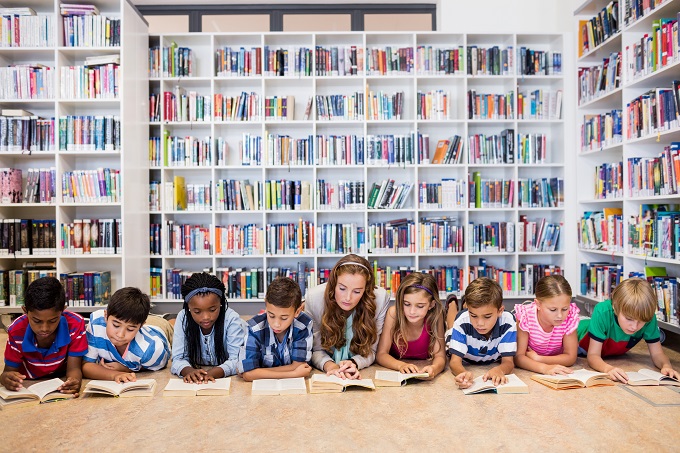Greening teaching – can it be done?
Schools are an unexpected contributor to the problem, but they might be the source of the solution.

A report released this week by the Climate Change Authority has explained how the nation can meet the target of net-zero emissions by 2050.
Sectors such as the automotive industry, agriculture, mining, aviation and shipping are already working towards decarbonisation, and reducing or removing the amount of CO2 they put into the atmosphere.
Read the latest print edition of School News HERE
Teaching may initially seem a relatively harmless profession when it comes to the environment, due to its focus on the cerebral rather than the concrete. But the unfortunate truth is that teaching as a profession and education as a sector have not made significant inroads towards becoming carbon neutral.
In fact, according to ZeroPositive.org, a not-for-profit emissions reduction program, supported by the United Nations, the school system is the fifth largest emitter of Carbon Dioxide and Equivalent (CO2e), in Australia.
Why is the education sector such a big carbon emitter?
While not actively creating waste like other industries, the sheer size of the education sector is the reason why it has such a significant environmental impact.
Over 4 million students currently attend Australian schools, and there are more than 415,000 registered teaching staff3 and many thousands of support and administrative staff in our 10,000 schools.
According to the ABC, the percentage of children who walk or ride a bicycle to school has declined from 75% in the 1980s to 25% in the 2020s4. This means 3 million children are being driven to school every day, in addition to the vast majority of teachers and staff who require a car to get to work.
Teachers and school staff have the distinct disadvantage of not being able to choose their work hours or work from home. Many schools, especially primary schools, are located in far-flung suburbs that are not always serviced by public transport.
In addition, there is the power used to heat, cool and light classrooms, and run equipment and computers, water for the bathrooms and grounds, and plastics in the classrooms and canteen. Energy use is enormous, with the Clean Energy Council estimating that just two classrooms use the same amount of energy each year as the average Australian household.
How many of us remember to turn our electronic equipment off at the wall at the end of every school day?
Rob Breur, CEO of Solar Schools, was quoted as saying: “If one school turned their appliances off at the wall every night, it would save, on average, $2,225 per school per month. If the 9,500 schools in Australia did that, it would reduce costs by $21M a month or $235M per annum.”
What is the solution?
Like all paths to a cleaner future, change is going to be needed on an individual all the way through to a societal level. The first step though, is acknowledging that there is something that needs to be done, and it is within our control.
It’s likely the average age of school buildings in Australia is around 40 to 50 years, meaning that many are due for refurbishment or renewal in the next decade. This provides an opportunity to replace fittings and fixtures with sustainable, energy-efficient updates.
In the meantime, there are plenty of individual schools that are independently making changes and working towards targets of zero emissions that we can learn from.
Broadmeadows Primary School in Victoria which has been generating its own energy from solar panels and a wind turbine since 2010.
Atlantis Baptist College in Western Australia which is Australia’s first 100% renewable-powered school generating and storing its own power and making its own hot water from solar heat pumps.
St Christipher’s Catholic Primary School in New South Wales, which is installing renewable-powered, sustainable portable classrooms.
The Low Carbon Schools Pilot Program (LCSPP) study run in Western Australia looked at 13 schools and how they could reduce their carbon emissions and operational costs. The study showed that schools reduced their carbon emissions on average by 20% on a per student basis and saved an average of 15% in costs. More than 70% of the actions identified by participating schools were low or zero cost.
While teaching may not seem like an environmentally impactful profession at first glance, the sheer scale and infrastructure of the education sector contribute significantly to carbon emissions. As the nation confronts the urgent need to reduce our environmental footprint, it becomes clear that education must also undergo a transformation towards sustainability. By integrating energy-efficient updates during renovations, encouraging sustainable practices, and rethinking transportation habits, schools can play a crucial role in the global effort to achieve net-zero emissions.
Ultimately, the people who will find an answer to some of these problems are probably sitting in classrooms at this very moment. The path to greening teaching may be challenging, but with collective action and commitment, it is undoubtedly within reach
Related articles:
The 7 Superpowers to Fight Climate Change
How to Help Students Who Are Anxious About Climate Change
High School Students and OzHarvest Fight School Waste







